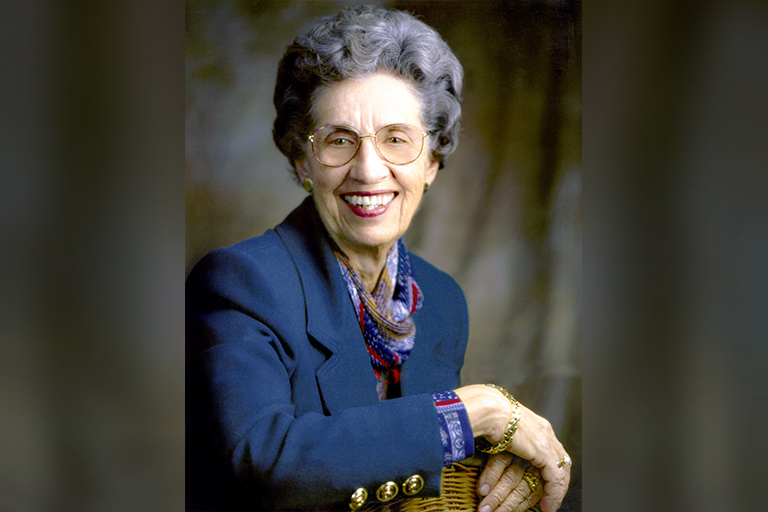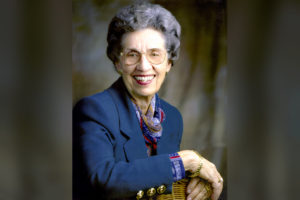Louise McBee: A personal and professional tribute of gratitude by Dr. Nancy Felson

 Mary Louise “Louise” McBee, a University of Georgia administrator and state legislator, died on Tuesday, March 2, 2021 at the age of 96. Reading her obituaries and tributes inspired me to want to add a little-known fact concerning her role in helping Bernard Dauenhauer and me when we were founding what was to become the Willson Center for Humanities and Arts at UGA.
Mary Louise “Louise” McBee, a University of Georgia administrator and state legislator, died on Tuesday, March 2, 2021 at the age of 96. Reading her obituaries and tributes inspired me to want to add a little-known fact concerning her role in helping Bernard Dauenhauer and me when we were founding what was to become the Willson Center for Humanities and Arts at UGA.
Louise joined the University of Georgia Student Affairs Division in 1963, first as Dean of Women and then as Dean of Students. She transferred her administrative skills to Academic Affairs and served as Associate Vice President and Acting Vice President for Academic Affairs until her retirement in 1988. She served under four university presidents, often in a chilly environment for women and for outspoken members of the faculty. Louise was adroit in navigating university politics and in moving projects and policies she believed in forward. Her experiences at UGA no doubt trained her for an active career, after her retirement, in the Georgia House of Representatives (1993-2005).
In the mid 1980s Louise helped a group of women faculty found the Women’s Studies Program at UGA (now flourishing as the Institute for Women’s Studies), and, in the period from 1984-1986, in her role in Academic Affairs, she helped us launch what we initially called the Center for Theoretical Research in the Humanities. This was the first incarnation of the Willson Center. Louise provided seed money, funded my trip to the Stanford Humanities Center to meet with their director and governing board, and sponsored a subsequent visit to UGA by the director of the University of Wisconsin-Madison Center for the Humanities. She asked tough questions all through that early period and helped Bernard and me brainstorm (along with Milner Ball of the Law School and Betty Jean Craige of Comparative Literature and a few other members of the UGA faculty) about the mission and the operation of the Center. It was Louise who advised us to get support from deans and department heads, so their faculty would be allowed release from teaching. And once the Center was officially established, with Bernard as its first director, it was Louise who made sure that we had an ongoing budget line.
Louise McBee understood from the start the importance of supporting humanities at UGA, especially since the University had no sabbatical policy. In the early years the Center provided research release from teaching and sponsored interdepartmental lectures and seminars and occasional conferences. With the name changed to the UGA Humanities Center and then, in 2004, to its current name, the initiatives it supported expanded and diversified – under the leadership first of Betty Jean Craige (director from 1993-2011) and then of Nicholas Allen (2012- current). Several of the programs from those early days have continued, but especially with the endowment from the Willson family, they have expanded exponentially.
